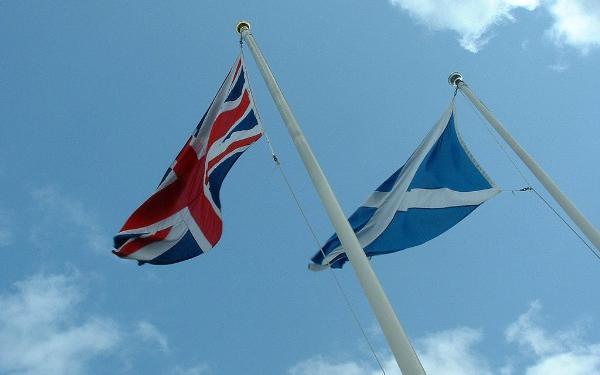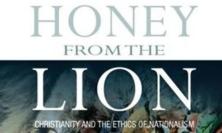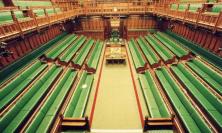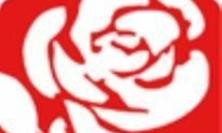Scottish First Minister, Alex Salmond is due to meet next week with Michael Moore, Secretary of State for Scotland, to discuss the referendum on independence that has been promised to the Scottish people by the SNP. Jim Gallagher, a former Government advisor on devolution, describes the history of the devolution project thus far and asks how the Catholic Church in Scotland might address the referendum.
Secession is in the air in Edinburgh. In a couple of years the Scottish people will be asked whether they want to leave the United Kingdom and become an independent country. Why does a 300-year-old Union face such a challenge? What changes rest upon the outcome of a referendum? And how has the Catholic Church affected and been affected by the Scottish political situation?
A State of Unions
What is the State that David Cameron runs: England, or Britain (Great or otherwise), or the United Kingdom? Many inhabitants use these labels interchangeably, to the intense irritation of some fellow citizens. A country that gets mixed up about its own name may either be highly self-confident or in the midst of an identity crisis.
The United Kingdom of Great Britain and Northern Ireland – to use its Sunday name – is a multinational state. Britain contains three nations: England, Scotland and Wales. But unlike other multinational states, the UK is not a federal country, namely one whose constituent states govern their own internal affairs independently of one another. Instead it is a Union, or more precisely a series of unions, between the constituent nations.
Wales and England were united by conquest 1000 years ago. Welsh institutions and laws were absorbed into English; Welsh identity was preserved in language and culture, and later in nonconformist religion. Irish history is of course a troubled one – conquest, settlement, rebellion, plantation and more. Partition of the island in 1923 left Northern Ireland, with its Protestant majority, within the UK. That remains contested but, since 1998’s Good Friday agreement, now largely in peaceful ways.
Scotland’s Union
Scotland’s Union was different. England and Scotland have shared a monarch since 1603 when the Scots exported Jamie the Saxth to be James the First of England as well. (For some reason, he did not return often.) But in 1707 they negotiated a deal to merge the Kingdoms as well.
The deal-making was murky. Scotland was broke, after a failed colonial venture. Influence was peddled, bribes were paid. ‘We’re bought and sold for English Gold’, wrote Burns decades later. But he was one of the many Scots who, once the Jacobite wars were over, benefited from the cultural flowering and breakneck economic development of the Scottish Enlightenment. Scotland did well out of the Union, participated enthusiastically in Empire and led much of the industrial revolution; Glasgow was the Silicon Valley of the time.
Cultural and Political Nationalism
Union, however, was not uniformity. Scotland preserved its own institutions: the Presbyterian national church, less tied to parliament than the Church of England; a separate legal system and the governmental elites that went with it; and a distinct approach to education (Scotland had four universities when England made do with two). So a Scottish national identity persisted.
This different identity had a number of expressions. It was most obvious, until the mid-twentieth century, in the Church of Scotland: Presbyterian in government, Calvinist in tone and doctrine, but still a national Church. Scottish culture also had a different tone, sometimes even a different language, with poets like the fiercely nationalist Hugh MacDiarmid sometimes writing in Scots as well as English. This domineering contrarian was a major figure in the flowering of mid-twentieth century Scottish literature. He seems to have entertained every possible political opinion at some point but became one of the founders of Scottish Nationalism.
Nationalism was a fringe political movement for a long period. UK Governments accommodated Scottish opinion through administrative decentralisation. A Secretary for Scotland was created in 1885 and within one hundred years a UK Government department ran most Scottish public services – health, education and so on. Nationalist votes, however, had grown in the 1970s, buoyed up by North Sea oil, leading the Labour Government to rediscover its historic commitment to Home Rule, and propose Assemblies for Scotland and Wales.
The Devolution Project
The creation of these Assemblies got as far as referendums in 1978. Wales rejected the notion out of hand. The Scots voted for it in a half-hearted way, but not enough to meet a 40% support threshold set in the founding legislation. The Labour Government fell in 1979 and thereafter Mrs Thatcher’s administration was having nothing to do with the project.
If the devolution project stalled for nearly twenty years, social and economic change did not. Radical shifts in the economic structure of Britain affected Scotland profoundly. Mines, steelworks, shipyards all closed. The River Clyde, which had once been the site of half of all shipbuilding in the world, now saw almost none; powerful trade unions lost their heavy industry base; coal-mining communities lost all purpose: whole cities seemed doomed to decline.
Economic changes have political consequences. The end of heavy industry may have been driven by irresistible economic forces, but it happened under a Conservative Government; and Mrs Thatcher was seen to glory in the concomitant breaking of trade union power. Conservatism was once a dominant political force in Scotland, but its popularity crashed. Since 1992, there has never been more than one Tory MP representing a Scottish seat.
These economic changes affected England, too, especially in the great northern cities. Britain has a political and economic North-South divide. The difference is that in Scotland it has a national, constitutional dimension. Even though relatively prosperous, Scotland defined itself as not Tory; and Tories as not Scottish.
A Scottish Parliament
In 1997 the incoming Blair Government delivered on a Home Rule promise developed in opposition, largely in Scotland. By 1999 there was a Scottish Parliament, with wide legislative powers, responsible for public services such as health and education and managing about half of the public spending in Scotland, the main exceptions being pensions and benefits. The UK Parliament retained control of issues like defence and foreign affairs, and macroeconomic policy, including taxation. Generous levels of public spending in Scotland were not, therefore, matched by higher tax rates.
Wales too (this time) accepted an Assembly and, after much stopping and starting, devolved government was restarted in Northern Ireland following the Good Friday agreement. The UK had become a multinational state, with decentralised political power – though only for the 15% of its population that does not live in England.
Emerging Nationalism
Scottish Nationalists were ambivalent about devolution. Would it kill their movement ‘stone dead’, as one Labour politician unwisely suggested? However, they adopted gratefully the role of opposition to the first Labour/Liberal Democrat administrations. They gained experience and profile as the new parliament became the principal focus of Scottish political life.
It is in the nature of things that oppositions become governments. By 2007 the Scottish National Party (SNP) were (just) the largest party and formed a minority administration. They were generally seen as competent and, contrary to many expectations, lasted the full, four-year term. Under an ebullient, populist leader, Alex Salmond, they established themselves as standing up for Scotland’s interests, often against Wesminster.
Two Important Elections
Two elections changed the political picture. In 2010, a Conservative/Liberal Democrat coalition took over government in Westminster, even though Labour did well in Scotland. In the Scottish elections of 2011, the SNP scored a remarkable and unexpected victory: despite a proportional voting system, they formed a majority administration.
This was a great political opportunity for the nationalists: with complete control over the Scottish Parliament and Government, Salmond could square up to a Tory Prime Minister, who was making unpopular public spending cuts. Salmond had the best backdrop for the independence referendum he had promised: vote to set Scotland free of Tory cuts.
But a majority was a problem, too. A referendum had been easy to promise in the expectation that it could not be delivered by a minority government. Mr Salmond knew that only a quarter or a third of voters supported independence, and that a lost referendum would be fatal to his cause. So he temporised, promising a referendum but hinting strongly about more powers for the devolved parliament.
Referendum a reality
The UK Government has upped the stakes. The Scottish Parliament does not have the legal powers to hold an independence referendum, but Mr Cameron, accepting that a referendum was inevitable, offered to remedy this, so long as the vote was clear and decisive. Salmond immediately responded by proposing a date and a yes/no question. We are now in a period of shadow boxing about the detail, but the outcome is likely to be a referendum on whether Scotland should leave the UK, no later than September 2014.
Campaigners are limbering up. The SNP are on a high; party membership is growing and rich, enthusiastic donors have contributed to a huge war chest. Supporters of the UK remain in disarray: Labour has not recovered from its election defeats north and south of the border, Conservatives remain stigmatised in Scotland, and Liberal Democrats are suffering from a backlash against their membership of the coalition. But some form of ‘Yes to Britain’ campaign will certainly emerge. The result is no foregone conclusion, either way.
Meanwhile, most Scots favour devolution, and rather more of it. The UK Government agrees, and will shortly enact a bill to give Edinburgh more tax-raising powers. Nationalists cannot quite decide whether to oppose or accept this but will probably take the bird in the hand, even as they ask for much more. The truth is that the relationship between Scotland and the rest of the UK is, as it has always been, not a question of in or out, but of degree: how much power and responsibility remains in Westminster and how much is vested in Edinburgh? Seen in that context, nationalism represents a pressure for greater autonomy, which might well be acceded to. A referendum on separation polarises the choices: but having conceived and now mounted this tiger, Mr Salmond cannot get off.
Where does the Church stand?
Scottish Catholics have their own hierarchy and their own Cardinal, Keith O’Brien. But historically the Church and Catholic voters have been suspicious of nationalism. The majority of Scottish Catholics are of Irish extraction and are traditionally Labour-voting. Many have been suspicious of the SNP as a ‘Protestant’ party, linking them in their minds with the anti-Catholic prejudice that was once very powerful in Scottish life and has not yet been wholly eradicated.
The SNP has presented itself as very much a ‘civic’ rather than ‘ethnic’ nationalist movement, reaching out to immigrant communities. And it has worked hard to win over the Catholic vote: Catholic schools have been untouchable, and bishops buttered up. The strategy has worked electorally. In the 2011 elections, it was former Labour voters, including many West of Scotland Catholics, who swung to the SNP.
For their part, the hierarchy, disillusioned with the socially liberal policies promoted by Labour, have allowed themselves to be courted. Some in senior Church positions are clearly sympathetic to nationalism. But it is in the nature of national movements to be all things to all men; every interest group is courted assiduously and allowed to hope its views will influence a new nation. It is not, however, clear how much, if any, influence over Scottish government policies episcopal warmth has delivered.
The Church has always had an ambivalent relationship with the 19th century notion of nationalism, claiming a supra-national authority but supporting nationalism in some Catholic countries – Poland and Ireland, say, or Slovakia. That offers little precedent for Scotland. The notion of subsidiarity, found in Catholic Social Teaching, is potentially more helpful, as a principle of allocating responsibility to the level of government nearest the people. It is potentially a guide between the extremes of nationalist autarky and blind centralisation. Over the next two years the challenge for the Church in Scotland and Catholic intellectuals will be to develop a meaningful Catholic contribution to Scottish constitutional debate – something so far lacking.
Nothing the same again
Scottish voters have now twice elected nationalists to their domestic government. Does this mean they want to leave the UK, or merely that they want someone guaranteed to stand up for their interests within it? Most of the evidence suggests the latter, but the choice will now be put. Whatever the answer, things will never the quite the same again for Scotland or Britain.
Jim Gallagher holds a Fellowship at Nuffield College, Oxford and is a visiting professor in the Glasgow University School of Law. He was formerly Director General Devolution in the Prime Minister's Office and Ministry of Justice.






